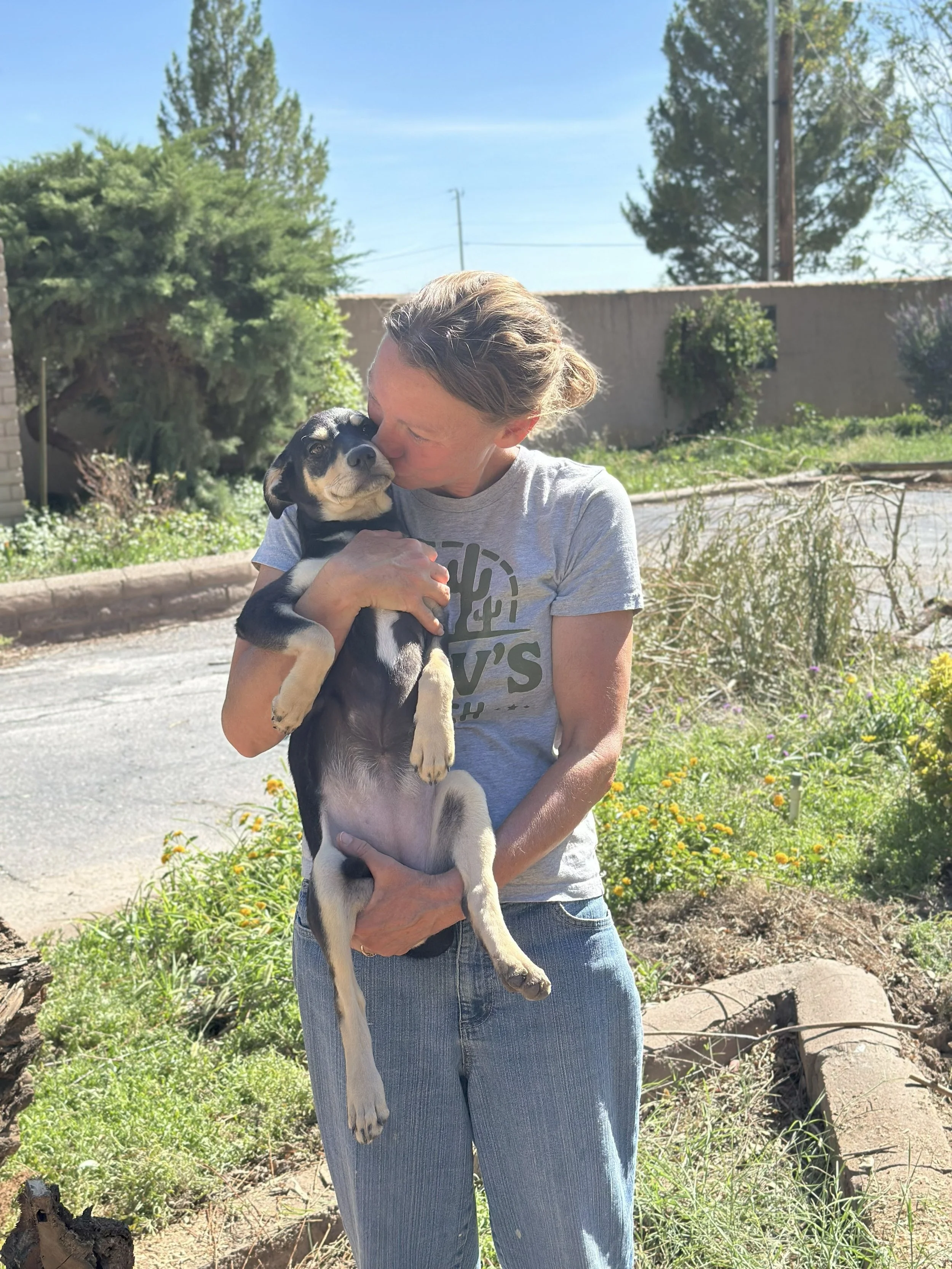Bringing Home a New Pet
Congratulations!
Bringing an animal home can feel very overwhelming. Here are the things you need to know:
1. The Decompression Period
Think of the first few days as a reset button for your pet. They may be overwhelmed, fearful, or overexcited. Give them time and space.
Safe Space: Provide a quiet room, cozy crate, or designated area with their bed, toys, and water.
Minimal Visitors: Hold off on visitors for the first week. Your pet needs to feel safe with you before meeting others.
Routine & Consistency: Stick to consistent feeding, potty, and bedtime routines. Predictability helps them relax.
3-3-3 Rule: Shelter pets generally follow a Rule of 3s. It may take 3 days to understand where they are, 3 weeks to settle into a routine, and 3 months to feel truly at home. Some pets adjust faster, others can take much longer. Just listen to your new pet and go at their pace.
If Your Pet is Fearful
Move slowly, avoid direct eye contact, and let them approach you first.
Reward calm, curious behavior with treats or gentle praise.
Never force interaction—trust is built over time.
Some pets may not even eat or use the restroom for the first few days. Give them time to understand they are safe and loved.
If Your Pet is Overexcited
Keep greetings calm and low-key.
Offer enrichment like puzzle feeders, walks, or chew toys to channel energy.
Reward calm behavior, not jumping or barking.
Remember: decompression can take days, weeks, or even months. Patience is key.
2. Building a Bond
Bonding doesn’t happen overnight. Here are ways to nurture your relationship:
Short, positive training sessions (2–5 minutes).
Walks and playtime to build trust and fun memories.
Gentle affection—some pets love cuddles right away, others need time.
Respect their pace. Every pet adjusts differently.
3. Potty Training & Kennel Training
Many pets arrive not fully trained—or may regress in a new home. That’s normal!
Potty Training: Take your dog outside frequently, especially after meals, naps, and play. Reward them immediately when they go outside.
Kennel Training: A crate should feel like a safe den, never a punishment. Start with short, positive sessions and build up gradually.
Force-free training resources:
5. Introducing Resident Pets
Rushing introductions can cause stress or fights. Take it slow:
Wait a few days before introducing your new pet to resident pets.
Scent First: Swap bedding or toys so they smell each other before meeting.
Neutral Territory: First introductions should happen on neutral ground, like a park.
Short Sessions: Keep meetings brief and positive.
Supervise Closely: Watch for body language—loose tails, play bows, and relaxed posture are good signs.
4. Microchip: Check & Update!
Every dog adopted from El Paso Animal Services (EPAS) and local rescues comes with a microchip—most commonly registered through 24PetWatch.com.
Why this matters:
Mistakes happen—chips can be linked to the wrong name or address.
If your contact info changes, your chip must be updated.
A microchip is only as good as the information attached to it.
✅ Steps:
Look up your pet’s microchip at PetMicrochipLookup.org.
Make sure your name, phone number, and address are correct.
Update immediately if you move, change your number, or rehome.
6. Common Struggles & Solutions
Chewing or Destructive Behavior
Provide plenty of chew toys and enrichment.
Exercise daily—tired dogs are less likely to be destructive.
Barking or Whining
Identify the cause (boredom, anxiety, alerting).
Use redirection and positive reinforcement.
Avoid punishment—it can make the issue worse.
Isolation Distress
Start with short departures and gradually increase time away.
Leave safe enrichment like a stuffed Kong or lick mat.
Consider consulting a force-free trainer if anxiety is severe.
Our Number One Tip: BE PATIENT.
Adjusting to a new home is not immediate. Some pets settle within a week; others need months. Be patient, consistent, and compassionate. Celebrate small wins.
Your pet doesn’t just need food, walks, and training; they need time to feel safe and loved. With patience, you’ll gain not just a pet, but a loyal family member.
Welcome to pet parenthood!






